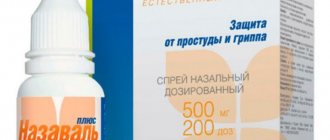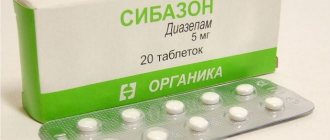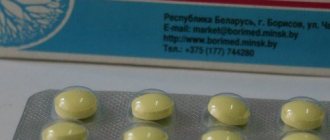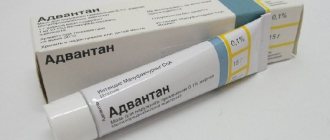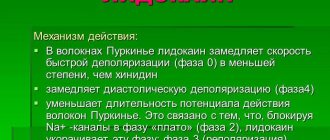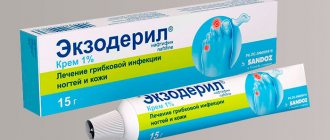Is Theraflu suitable for children? This question arose, perhaps, for every parent who experienced the therapeutic effect of this medication. This drug is distinguished by its ability to reduce the severity of unpleasant colds, such as fever, runny nose, headaches and joint pain. Every caring parent, of course, wants to alleviate the child’s condition, but when deciding to use this or that medication, you must definitely read the attached instructions to make sure that such therapy is possible.
Operating principle
Theraflu (which does not have a special children's version) is a complex drug that has several types of effects: anti-inflammatory, antipyretic, analgesic, decongestant, antihistamine.
The principle of action of this medication is determined by the components in its composition:
- Paracetamol: a non-steroidal anti-inflammatory drug that has the ability to block a special enzyme that reduces the concentration of active compounds (prostaglandins, leukotrienes). This effect reduces the severity of inflammation, lowers body temperature to physiological norms, and reduces the intensity of pain.
- Pheniramine: has the ability to block histamine type H receptors. This substance gives a pronounced antiallergic effect, it neutralizes the effects of histamines. Pheniramine reduces swelling of the nasal passages, stops excessive lacrimation, reduces the amount of nasal discharge, reduces itching and the frequency of sneezing.
- Phenylephrine: This is a symptomatic amine that acts on alpha adrenergic receptors located in arterial vessels. This process stimulates the narrowing of their lumen, which reduces the pronounced swelling of the nasal mucosa.
Oral use of Theraflu promotes rapid penetration of the drug components into the digestive tract. Here the medicine quickly penetrates the systemic bloodstream, is distributed throughout the tissues, and penetrates into biological fluids. The remains of the drug undergo metabolic processes in the liver, where the accumulation of inactive decay products occurs. These substances are excreted outside the body along with urine.
Pharmacological properties of the drug Theraflu
Combined drug for the treatment of influenza and colds. It has antipyretic, decongestive, analgesic and antiallergic effects. Paracetamol has an analgesic, antipyretic and mild anti-inflammatory effect. Phenylephrine hydrochloride has a sympathomimetic effect, causes vasoconstriction, reduces swelling and hyperemia of the mucous membrane of the nasal cavity and paranasal sinuses. Pheniramine maleate, an H1 receptor blocker that has an antiallergic effect, reduces the severity of local exudative manifestations, eliminates lacrimation, rhinorrhea, and reduces itching in the eyes and nose. After oral administration, paracetamol is quickly absorbed into the gastrointestinal tract. The maximum concentration in blood plasma is reached after 30–60 minutes. When used in therapeutic doses, the half-life is 1–4 hours. Paracetamol is metabolized in the liver mainly through the conjugation reaction. Depending on the concentration in the blood plasma, it is partially deacetylated or hydroxylated. The main route of elimination is in the urine (90–100% over 24 hours), in the form of conjugates - glucuronides (60%), sulfates (35%) or cysteine (3%). The maximum concentration of pheniramine maleate in blood plasma is achieved after 1–2.5 hours; The half-life is 16–19 hours. 70–83% of the dose taken orally is excreted in the urine unchanged or in the form of metabolites. Phenylephrine has limited bioavailability due to insufficient absorption in the gastrointestinal tract and first-pass metabolism in the intestines and liver, which is caused by the action of MAO.
Release form and composition
At what age is Theraflu approved for use in children? According to the instructions included with this medication, children can take it no earlier than they are 12 years old. Before this age, the use of the medication is strictly prohibited.
Theraflu has several dosage forms, each of which contains a number of active ingredients:
- paracetamol;
- phenylephrine hydrochloride;
- pheniramine maleate.
In addition to the main components, the product contains auxiliary: flavors, dyes, magnesium stearate, sucrose, calcium phosphate, povidone, macrogol, lactose and other substances.
Theraflu is a popular medicine and is available in different forms, each of which is used to achieve specific therapeutic goals:
- The powder relieves the negative symptoms of colds. It has different flavors (raspberry, apple, cinnamon, with wild berries). This form is used to get rid of high body temperature and reduces respiratory symptoms.
- Granules called Theraflu Immuno are used for oral resorption. They can be used after 14 years of age, they are packaged in disposable sachets. This dosage form is used to reduce fever and relieve pain.
- Tablets (may have the prefix Forte, Extra): used only for adult patients.
- Theraflu ointment for children can be used from 12 years of age. It is used to ease breathing and improve sputum discharge.
- Teraflu Lar RS, available in the form of tablets and sprays, are used to treat ENT and dental pathologies. They do not have an antibacterial composition, but are used to get rid of laryngitis, pharyngitis, and stomatitis.
- Spray or drops, have an anise flavor, are used for improved sputum discharge.
We recommend reading: Can pregnant women take paracetamol?
Pharmacological effect
Theraflu reduces fever, relieves cough, promotes mucus discharge, relieves headaches, moderately constricts capillaries, reducing swelling of the mucous membranes.
Paracetamol in combination with other active substances has an analgesic effect, reduces body temperature, and eliminates other symptoms of malaise during feverish conditions.
Pheniramine maleate works as an antihistimine, relieving itching, burning, and irritation of the mucous membranes of the nasopharynx and trachea. Phenylephrine hydrochloride reduces their hyperemia and promotes the outflow of fluid from areas of inflammation.
Quickly absorbed through the gastric mucosa into the blood, the medicine acts within 10–15 minutes. The therapeutic effect lasts for 3–5 hours.
Taking Theraflu eliminates the symptoms of most respiratory infections, improves overall well-being, restores performance, and shortens the duration of ARVI, influenza and other colds.
Directions for use: special instructions
Before you start using the medication, you should remember that Theraflu has clearly defined age restrictions. The drug is used no earlier than 12 years.
In addition, the instructions specify other instructions that you should pay attention to:
- long-term use of Theraflu can provoke serious hepatotoxic effects on the liver, as well as nephrotoxic effects on the kidneys;
- simultaneous use of the medicine and alcoholic beverages is not allowed, this situation will only increase the toxic effect of the medicine;
- the drug does not in any way combat the causes that caused the development of the pathological condition. Its components can only reduce the severity of negative symptoms from the respiratory system;
- the substances contained in Theraflu may well be used together with other pharmaceuticals (but before combining them, you should obtain medical advice);
- the use of the medication requires a person to temporarily stop driving vehicles and working with complex mechanisms. This is due to the fact that the drug can significantly slow down a person’s reaction time.
Despite the fact that Theraflu can be purchased without a doctor’s prescription, for the treatment of a child under 12-14 years of age, it is better to replace it with single-component formulations that are not contraindicated for a particular age.
Why do you need Theraflu for a cold?
Viruses are the cause of 80% of infectious diseases of the upper respiratory tract. They penetrate the human body, invade cells and destroy them, which leads to the appearance of symptoms characteristic of ARVI. During the fight against infection, the body experiences hyperthermia, which is a normal reaction to toxins entering the blood. Medicines during this period are aimed primarily at reducing unpleasant signs of the disease, reducing high fever, and reducing intoxication.
Indications
As noted above, a newborn should not be given Theraflu under any circumstances. The medicine is approved for use no earlier than the child turns 12 years old.
Indications for the use of Theraflu are:
- cold symptoms that develop in a person after a viral infection enters the body;
- deterioration of condition, accompanied by fever, headache, nasal congestion, and other catarrhal symptoms;
- therapy of infections caused by exposure to rhinovirus, adenovirus, influenza, parainfluenza.
Overdose of the drug Theraflu, symptoms and treatment
Symptoms of paracetamol overdose : hepatotoxic effect, in severe cases liver necrosis develops. The first symptoms (nausea, vomiting and epigastric pain) may appear within 24–48 hours or later. Symptoms of overdose associated with potentiation of the parasympatholytic action of the antihistamine component and the sympathomimetic action of phenylephrine : drowsiness, which may be replaced by agitation (especially in children); visual impairment; nausea, vomiting, headache; circulatory disorders; coma; convulsions; behavior change; AH (arterial hypertension); bradycardia; atropine-like psychosis. Treatment : timely intravenous or oral administration of N-acetylcysteine as an antidote to paracetamol, gastric lavage, administration of activated charcoal, monitoring the state of the respiratory and circulatory systems (epinephrine should not be used). In case of seizures, diazepam is prescribed.
Contraindications
Theraflu can be used not only according to age restrictions, it is important to pay attention to the physiological state of a person. There is a clear list of contraindications that do not allow the use of this medication; it is very clearly outlined in the instructions for the drug.
We recommend reading: ARVI during pregnancy, 2nd trimester
Contraindications to the use of Theraflu:
- high sensitivity to any component of Theraflu (main, auxiliary);
- chronic alcoholism;
- the use of drugs included in the group of MAO inhibitors, tricyclic antidepressants, beta-blockers;
- portal hypertension, with a mandatory increase in portal vein pressure;
- diabetes mellitus (types 1, 2);
- children's age (up to 12 years);
- pregnancy period;
- breastfeeding a baby.
In addition to absolute contraindications, there is a list of relative reasons when the medicine can be used only after receiving prior medical advice.
Theraflu is used with caution when:
- pronounced forms of atherosclerosis (coronary arteries);
- increased blood pressure;
- deficiency of certain enzymes;
- Angle-closure glaucoma, with increased intraocular pressure;
- congenital pathological conditions of the liver with increased bilirubin levels;
- severe pathological conditions of the liver, kidneys;
- pheochromocytoma with increased synthesis of adrenaline;
- hypothyroidism;
- prostatic hyperplasia.
Important! The drug contains many contraindications that must be excluded before starting its use.
Action of phenylephrine hydrochloride in the body
The active substance phenylephrine hydrochloride is aimed in the body at relieving pain spasms and relieving swelling that forms during a cold. After all, as a result of a cold, a pathological narrowing of the blood vessels of the nasal sinuses occurs, as well as the sinuses near the nose.
It is worth noting that phenylephrine hydrochloride is poorly absorbed into the human gastrointestinal tract and liver. The action of pheniramine maleate is aimed at blocking receptors that are activated during illness. To explain in simple terms, phenylephrine hydrochloride blocks tearing of the eyes, reduces itching in the sinuses, and also reduces the effects of a runny nose.
Overdose
Significantly exceeding the recommended dosage of this medication can affect a person’s condition. The toxic effect of paracetamol can provoke the development of such negative reactions:
- stomach pain;
- nausea;
- damage to the liver, kidneys;
- development of liver failure due to the high toxicity of paracetamol.
This condition is treated by gastric lavage and taking sorbents (activated carbon). If 8 hours have not passed since the overdose, the use of methionine is indicated. When more than 12 hours have passed, acetylcysteine is used. This therapy is performed only in a hospital setting.
In addition to overdose, long-term therapy with Theraflu can provoke the formation of negative reactions in the body.
Side effects of Theraflu:
- Gastrointestinal organs: pain in the epigastric region, nausea, dryness of the oral mucosa;
- CNS: increased nervous excitability, dizziness, headache, problems falling asleep and staying asleep;
- heart and blood vessels: increased blood pressure;
- sense organs: increased pressure inside the eyes, enlarged pupils, accommodative paresis;
- circulatory system: decreased hemoglobin due to decreased red blood cells, decreased platelets, granulocytes in the blood serum;
- organs of the genitourinary system: decreased amount of urine excreted, nephrotoxic effects, excess glucose in the urine;
- skin reactions: the appearance of a rash, redness, irritation accompanied by itching, urticaria, Quincke's edema.
The occurrence of any adverse reactions requires immediate cessation of drug therapy, as well as seeking medical help.
Side effects of the drug Theraflu
The most common adverse reactions are drowsiness, dizziness, dry mouth and throat, fatigue, headache, insomnia, irritability or nervousness, tachycardia and palpitations. Rarely, especially in children, agitation and sleep disturbances. From the gastrointestinal tract : nausea, vomiting, constipation, diarrhea or flatulence. Adverse reactions associated with the action of paracetamol : rarely, urticaria and skin rashes, thrombocytopenia, leukopenia, hemolytic anemia, in isolated cases - agranulocytosis. Reactions are sometimes observed in patients with intolerance to acetylsalicylic acid (for example, asthma). Adverse reactions associated with the sympathomimetic effect of phenylephrine : increased blood pressure (especially in patients with hypertension (arterial hypertension)), reflex bradycardia, mydriasis (with an effect on glaucoma). Possible effects on the endocrine and other systems affecting metabolism, urinary retention and strangury (difficulty urinating). Adverse reactions associated with the peripheral anticholinergic effect of pheniramine : dry mouth, dry eye mucosa, retention and difficulty urinating in men. Adverse reactions associated with the central influence of pheniramine : drowsiness, in isolated cases - coma, epileptic seizures, dyskinesia, behavior changes. Unlike second-generation antihistamines, the use of pheniramine is not associated with prolongation of the QTc interval and arrhythmia.
How can an overdose occur?
An overdose of Theraflu develops in those patients who use it without following the instructions. To prevent an overdose, you need to drink the powder strictly according to the instructions, without allowing an unauthorized increase in the dose or frequency of its administration.
We recommend reading: Rinza for children
The drug contains a lot of paracetamol, so it should not be given to children under 12 years of age (some sources set this bar higher - at the level of 15 years). Otherwise, this medication may disrupt the development of the child, having a serious hepatoxic effect on him.
The medicine has a similar effect on pregnant and lactating women. For them, taking this drug is contraindicated, otherwise it may negatively affect the baby’s health. In addition to medicinal components, Theraflu has many flavors and dyes, which are also harmful to the child’s body.
How to prepare Theraflu at home?
This remedy can not only perfectly reduce the temperature, but also provide high-quality prevention of colds and acute respiratory viral infections. Many of those who are afraid of the side effects of Teraflu from pharmaceuticals have been successfully cured with the help of a folk recipe. So, to make the medicine you need to take:
- 2 spoons honey
- 30 gr. peeled ginger root
- 2 lemons without zest.
Theraflu is prepared at home as follows: cut the lemons into 4 parts and place in a blender bowl. Grind the lemons to a paste. Next, cut the ginger root into small pieces and grind it in the same bowl along with the lemon. Add high-quality natural honey, mix the whole mass thoroughly. As a result, the bowl should turn out to be a smooth, thick paste that smells very pleasant. If desired, you can add more honey (to taste).
Drug interactions
The use of Theraflu does not prohibit the additional use of other medications, however, in order to avoid negative effects on the body, you must first study the instructions.
Principles of drug interactions:
- the risk of hepatotoxic effects increases when a person simultaneously takes barbiturates, rifampicins, diphenin, carbamazepine, and other liver inducers;
- urinary retention, increased dry mouth, and digestive disorders often develop when a person takes antidepressants, antipsychotics, antiparkinsonian drugs, and phenothiazine derivatives at the same time as Theraflu;
- glucocorticosteroids can cause an increase in blood pressure;
- propantheline may reduce the rate of absorption of Theraflu components;
- metoclopramide promotes accelerated absorption of the drug;
- paracetamol helps to lengthen the half-life of chloramphenicol (the time increases by 5 times);
- the excretion of paracetamol will increase, as well as the number of harmful metabolites formed, if salicylamide is taken at the same time;
- chlorzoxazone can provoke an increase in toxicity to the body, both from it and from paracetamol;
- neutropenia may increase when a person takes Theraflu and Zidovudine at the same time;
- taking the medication enhances the effect of coumarin derivatives.
Application and dosage
Before taking the powder from the bag, pour 200 ml of hot boiled water and stir until the lumps dissolve. The solution is drunk warm between meals. In the absence of contraindications, it is allowed to sweeten it with a small amount of honey or sugar.
The maximum dose of medication per day is no more than 4 sachets. The break that must be observed between doses of Theraflu: 4–5 hours. A particularly pronounced symptomatic effect is achieved when using the solution at night. It is also possible to take a one-time medication to relieve symptoms in unsatisfactory conditions.
Permitted period of daily use of the drug without medical supervision: 3 days. If relief does not occur during this time, it is necessary to stop treatment with Theraflu and carefully examine the body.
How much and how to give
Theraflu powder is used exclusively for internal use; when it comes to tablets, they should be washed down with water without chewing. The powder is pre-dissolved in water, slightly cooled after boiling. Approximately 100 ml of water is suitable for this purpose.
Children over 12 years of age can take a Theraflu tablet at a time, or drink one sachet of dissolved powder. You should not take more than 4 tablets (packets of powder) per day; it is advisable to maintain equal time intervals between them.
Adult patients can take two tablets at one time (dissolve two powders) to get quick relief of symptoms. However, repeating this procedure within one day is not recommended; subsequent doses should include only one dose.
The duration of taking Theraflu is 3 days. When a person, after this period, does not observe improvements in his own condition, he should seek medical help.



